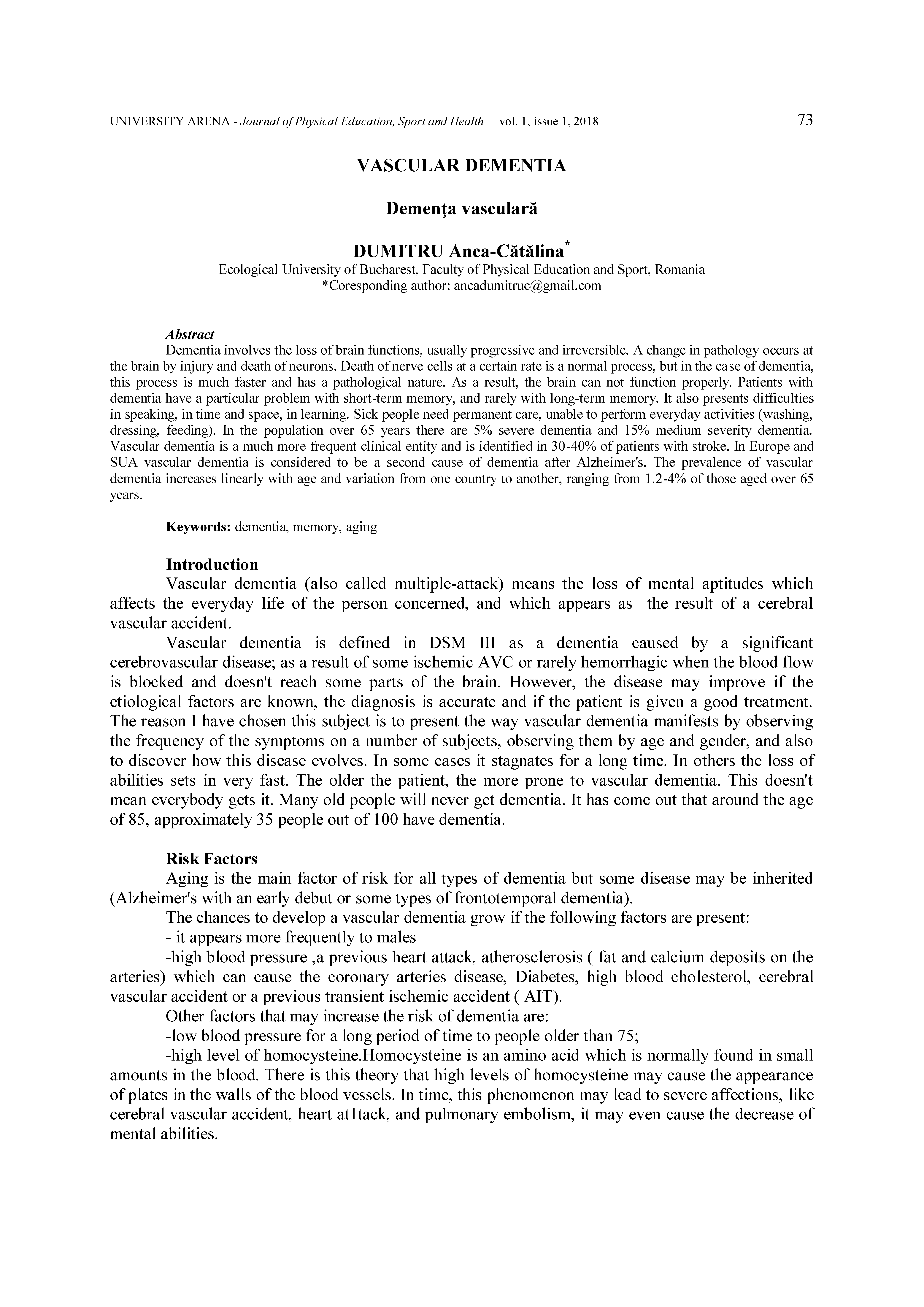VASCULAR DEMENTIA
DOI:
https://doi.org/10.62229/UaI_1_18-13Keywords:
dementia, memory, agingAbstract
Dementia involves the loss of brain functions, usually progressive and irreversible. A change in pathology occurs at the brain by injury and death of neurons. Death of nerve cells at a certain rate is a normal process, but in the case of dementia, this process is much faster and has a pathological nature. As a result, the brain can not function properly. Patients with dementia have a particular problem with short-term memory, and rarely with long-term memory. It also presents difficulties in speaking, in time and space, in learning. Sick people need permanent care, unable to perform everyday activities (washing, dressing, feeding). In the population over 65 years there are 5% severe dementia and 15% medium severity dementia. Vascular dementia is a much more frequent clinical entity and is identified in 30-40% of patients with stroke. In Europe and SUA vascular dementia is considered to be a second cause of dementia after Alzheimer's. The prevalence of vascular dementia increases linearly with age and variation from one country to another, ranging from 1.2-4% of those aged over 65 years.


